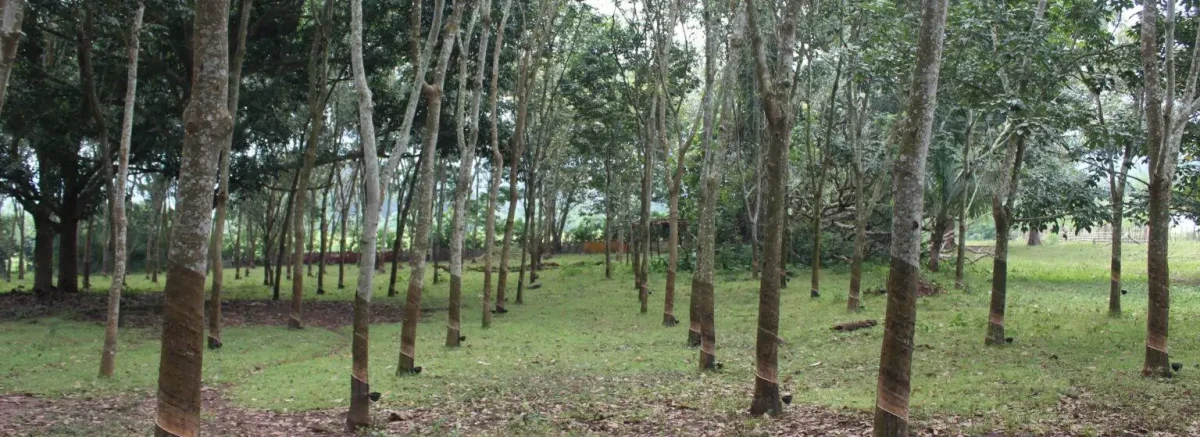The history
One year ago, we visited some remote places in Andhra Pradesh, India where there is no cellular connectivity, to set up community-run, wireless networks. The idea was to provide access to offline-only digital-content with the help of freedom box server with a wireless local area network using long range outdoor Wi-Fi antennas. In some villages, there was a wired optical fiber internet connection to a school or a government office in the village (often for administrative purposes) but the rest of the village did not get access to that network. In those villages, we hooked up long range outdoor antennas to those optical receivers and set up a Wi-Fi network so that anyone could connect to this network and make Wi-Fi calls or use the internet. You can know more about this in this post and the talk we gave at DebConf23.
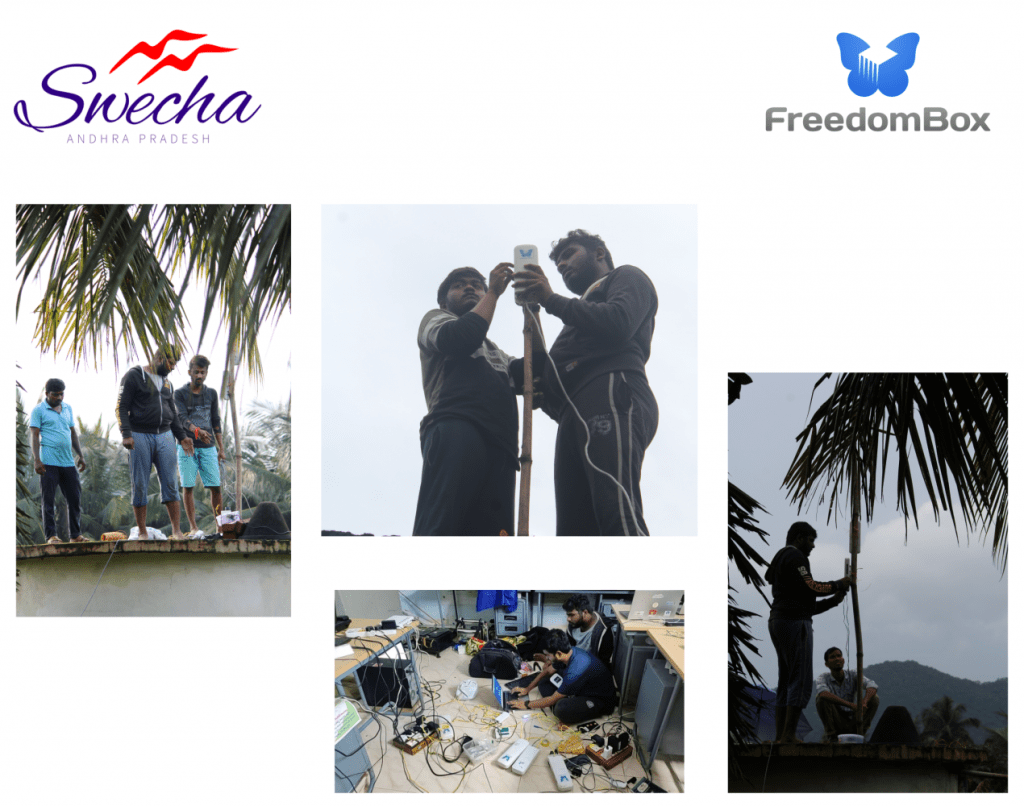
Now, after a year, we are amazed by the progress they have made. Most people learned to use Android phones, accessing the internet, banking with UPI, and more. Some learned to edit videos, and even started a YouTube channel to tell their stories. Students are using learning resources we provided in the freedom box server. Since the internet which was earlier restricted to a single government office is now spread out to the entire village, various government staff relied on this network to deliver services to the villagers at their doorstep. It is amazing how our little efforts acted as a catalyst to this much change. The good thing is that, cellular companies are slowly expanding their coverage to these villages and people will have an alternative. We will continue to provide free internet either way.
What can we do now?
With learnings from this project, we sat together and started planning our next steps. Now that the connectivity problem is solved, what could we do now to make their lives even better? We ideated a plan to set up a Community Digital Library in which we will provide some computers, books, and a trainer who will run a computer coursework for students in the school and teach the youth essential computer skills. We decided to conduct an initial survey to know the feasibility of this idea, so we headed to four of these villages where we gave internet access earlier. These villages are situated in the Maredumilli Mandal in Alluri Sitharama Raju district of Andhra Pradesh. Maredumilli is famous for its hills, water falls, and lakes. It is also called as the Ooty of Andhra Pradesh, and the famous movie “Pushpa” was apparently shot here
We spent the day interacting with the youth, school teachers, students, and parents. The population of these four villages is a little over 900. Each village has a primary school and an Anganwadi center. Vetukuru particularly has an Upper Primary school where 220 students study. So we zeroed in on that school for running computer course work in the initial phase. After that, we started interacting with the locals and got to know the issues they are facing.
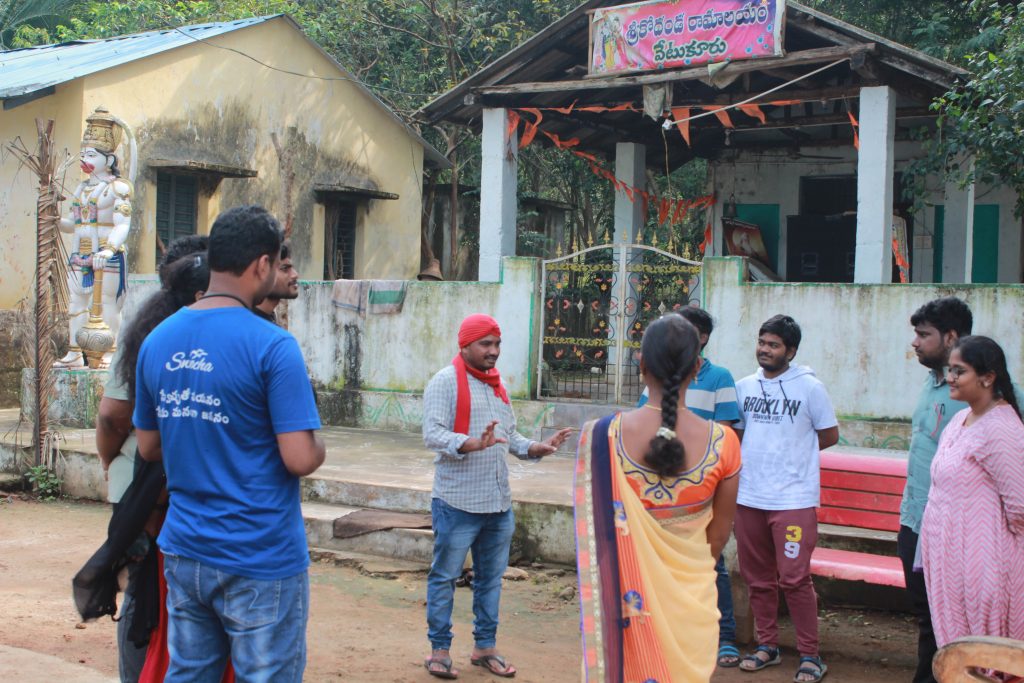
The problems
The key issues we got to know were that most students stop their education after class 12. Some get a degree, but the number is very low. Higher education is inaccessible and costly, so students quit education to support their families domestically and financially. Speaking of finances, most people in these villages earn ₹250 ($3) a day working in rubber plantations for long hours. Work starts at 2 in the morning with Rubber tapping and continues till evening with preparation of rubber sheets.
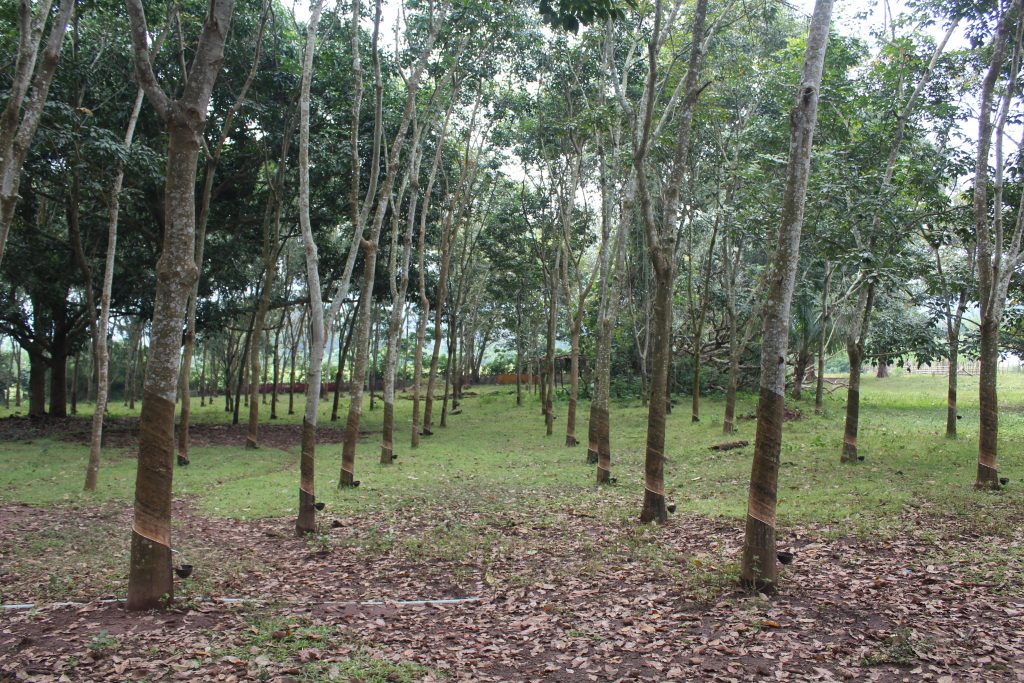
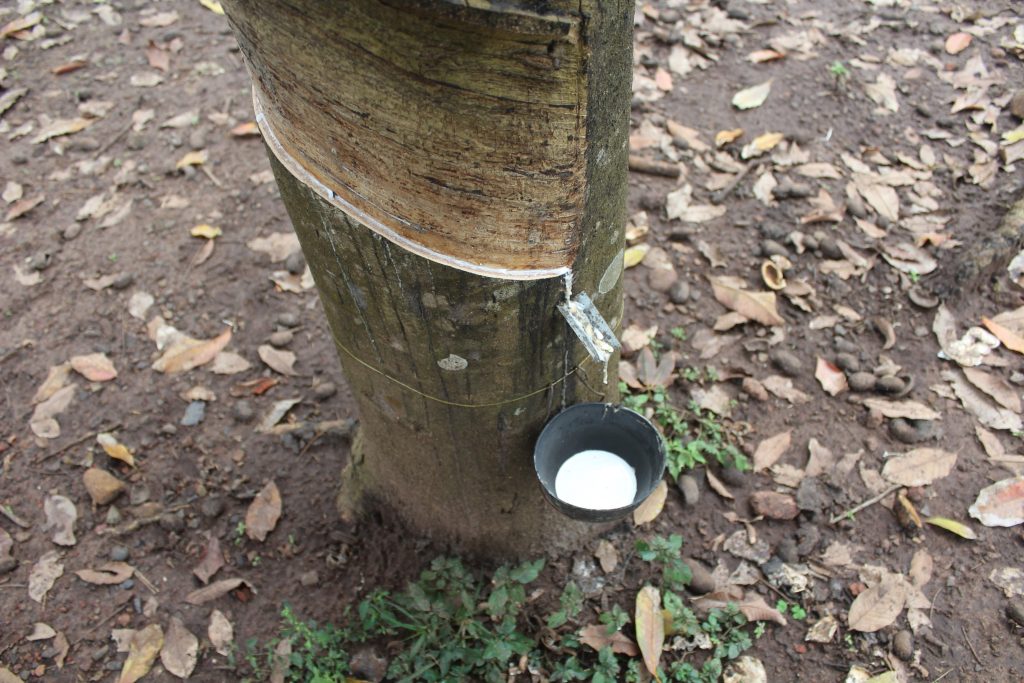
While we toured the villages talking with people, some of us helped fix the antennas which weren’t functioning due to bad cables, PoE issues, etc
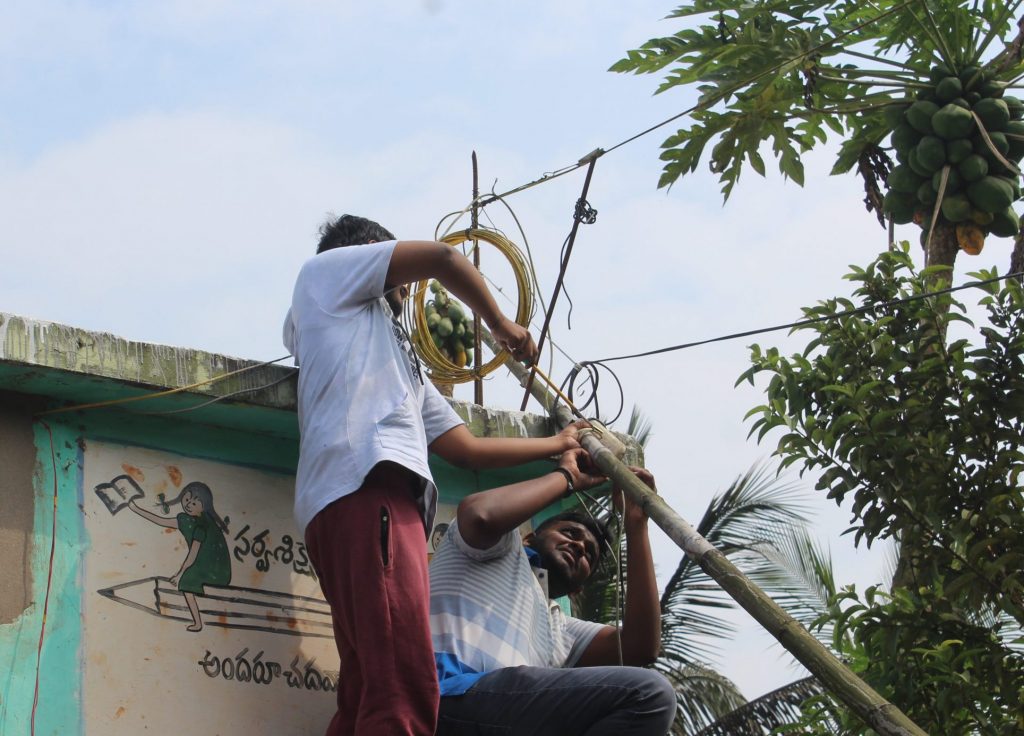
After this, we went to the school and spent some time with students. We saw a clear need for computer education. Imagine what all these young kids could achieve in the future if we get them up to speed with technical skills?
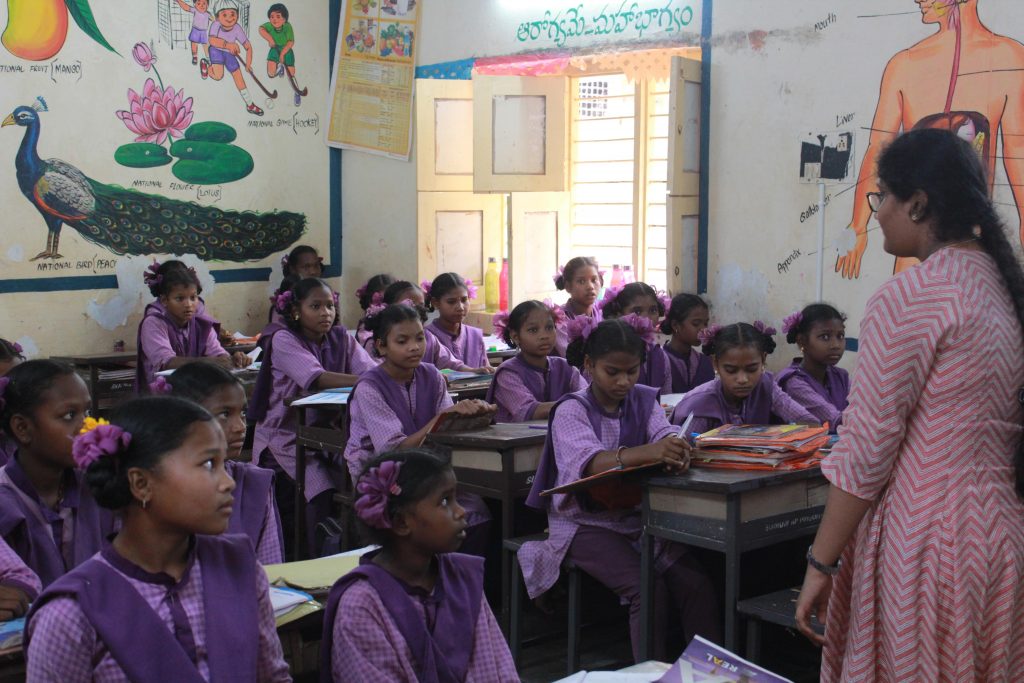
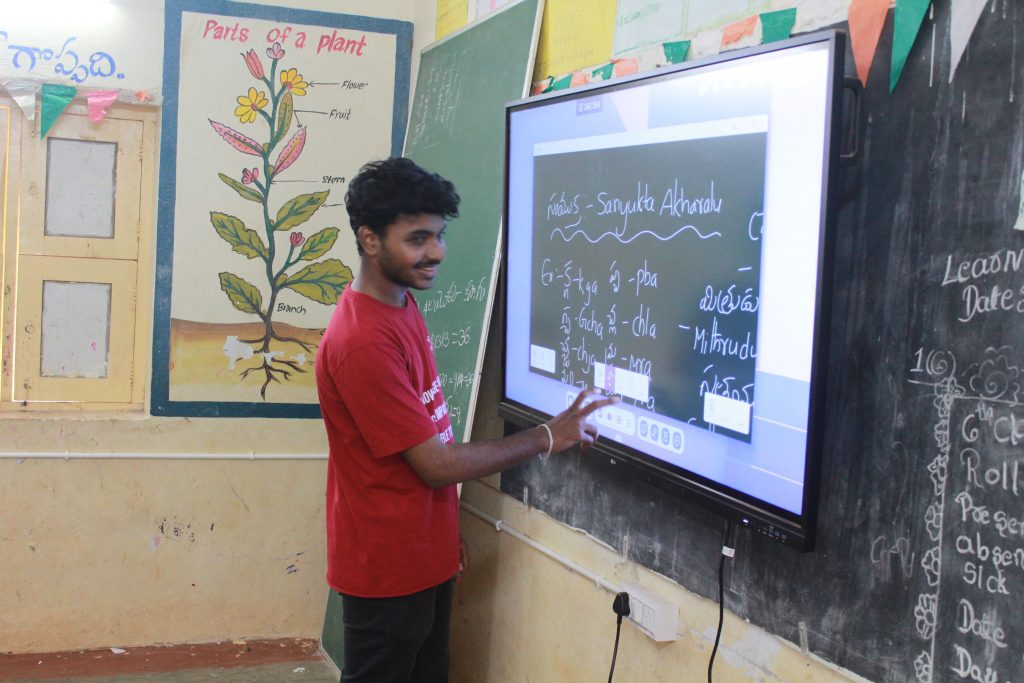
The screen in the above image was set up by the government, but teachers weren’t trained to use them and the classes are too far from the Wi-Fi router in the office room. We tried to train teachers within the little time we had and set up a repeater to spread the wireless network to all classes. The screens are great, but they don’t really add much to the classroom experience. Most teachers use them as a blackboard and to show YouTube videos.
What we are planning to do
The plan is to train at least a couple of people (from the same villages) who will be the resource persons of this project. They will run the coursework in school, and teach essential skills to the public through the community digital library. We will need to design proper courses and learning content tailored for the kids and the community we talked to. Students are our primary focus, and we are determined to empower them with computer education. For the general public, we want to start by helping youth with upskilling. Teaching basic English is also a challenging task. There are more things that we want to do, but these are our focus areas for now.
Infrastructure
We need ten computers at a minimum, some furniture, books, and some networking hardware. We are looking to get a combination of used Mini PCs, new monitors, and used ThinkPads.
How you can help
You can help us by donating any computer hardware you can. Storage, RAM, old monitors, anything works. You can also help us financially. A single computer setup costs us ₹20,000 (~$240). If you have some free time on your hands, you can volunteer with us in content collection, program design, fundraising and other tasks.
You can reach out us at contactus@swechaap.org or phani@swechaap.org for donating hardware, volunteering, or to know other info. Or click the button below to make a contribution towards the fundraiser.
Next steps
After a day full of learnings, we are back at the drawing board, making modifications to improve our initial plans, and we are excited to make a change in their lives. Join us if this interests you and you want to contribute

